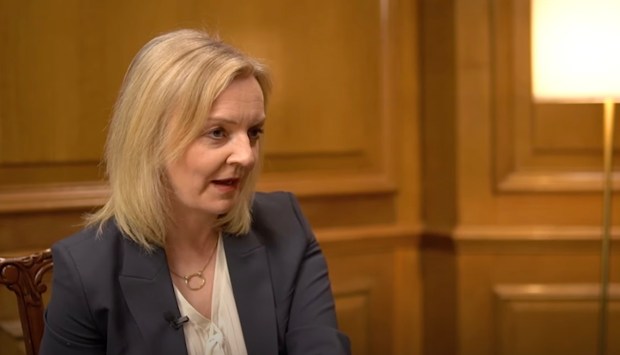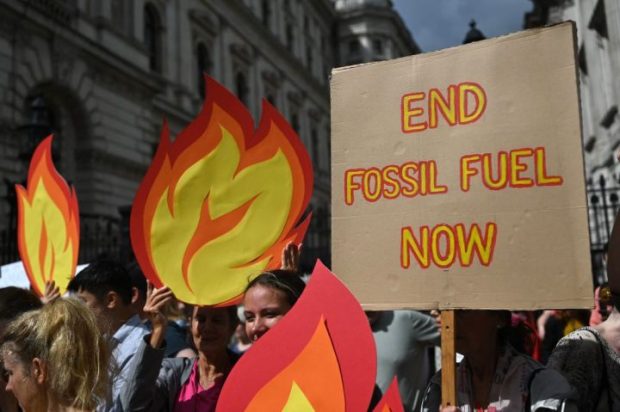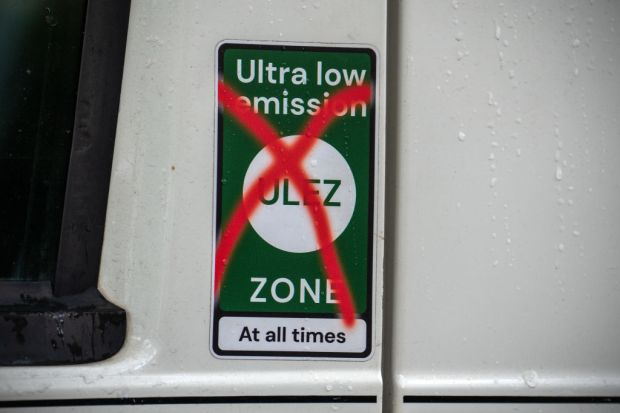Liz Truss may be long gone, but one fragment of her premiership still remains: the Growth Commission she set up to advise on her policy for ‘growth, growth, growth’. The think tank, made up of British, US and Japanese economists and not to be confused with a body of the same name set up by the World Bank, today delivers its ‘growth budget’ – which it claims would boost GDP by a cumulative 23 per cent over the next decade, putting an extra £11,000 in our pockets (or £26,000 per household) by 2043.
Economic modelling is best taken with a Siberian mine’s worth of salt – the only certainty is that it will be wrong. But it is worth reading the commission’s recipe for growth for the sake of reminding ourselves how different a Truss government might have been had it survived.
The Budget breaks down its claim of 23 per cent extra growth by 2043 as follows:
• 6.4 per cent would come from reforms to the planning system, first of which would be time-limiting planning permissions, so the developers would have to use it or lose it.
Actually, planning permissions are already supposed to be time-limited, although it is rather easy to get around: you just have to show you have made some sort of start. One developer was able to keep its permission extant simply by painting some lines in the car park. The Growth Commission also recommends a planning system based more on zoning – where there would be a presumption in favour of planning permission if the developer stuck to a set of rules for that zone. It also suggests that where greenfield land is granted planning permission, land owner and local authority should share the uplift in value, with the local authority’s share spent on infrastructure.
• 2.2 per cent would come from energy reforms, including an end to net zero levies, investment in nuclear power and the issue of licenses for fracking and North Sea oil and gas. Rishi Sunak has followed the last of these policies and has approved one new nuclear power station, which alone will not
• 2.7 per cent would come from changes to labour law, making it easier and cheaper to make workers redundant, removing the EU Working Time Directive from the statute book to make it easier to have workers working overtime, and changing the benefits system to make work pay.
How many times have we heard governments telling us they are trying to achieve the latter? It’s easy to say; but the Growth Commission’s figures won’t mean anything without detailed proposals as to how the welfare system can better make work pay (although the government’s failure to increase the personal tax free allowance with inflation certainly doesn’t help). As for the former two suggestions, it would require a far tougher approach to dealing with the unions than the present government has yet shown.
• 4.4 per cent would come from increasing public sector productivity. But it doesn’t say how. The government’s initiative so far – which seems to have gone little beyond Jacob Rees-Mogg leaving notes on the desks of absent civil servants, telling them he looked forward to seeing them back in the office soon – doesn’t seem to have done the trick.
• 4.7 per cent would come from tax reform. The Growth Commission would like to see Corporation Tax cut back to 19 per cent and then 15 per cent. It would like to see income tax thresholds raised – ie. reversing Sunak’s freeze. And it wants to see an end to people having their personal tax allowance withdrawn once they earn £100,000 – a measure which at present leads to marginal tax rates of 60 percent.
The remainder would come from better infrastructure and a few other things.
Many of these are good ideas, if fatally lacking in detail in many areas. The Growth Commission’s budget is a reminder, however, that Liz Truss and Kwasi Kwarteng never moved their growth agenda much beyond the tax cuts. Tax cuts are all very welcome – though a little tricky to achieve when you have a deficit and ballooning debt which is already costing you over £100 billion a year in debt interest.
We can only wonder how Truss’ growth agenda would have fared – and what impact it would have had on GDP – had she not been somewhat over-eager with the tax cuts. The sad thing is that Kwarteng’s misfiring mini-budget has poisoned attitudes towards a laissez-faire growth agenda – and encouraged those who believe in an interventionist approach. I fear that few will be listening to the Growth Commission, which is a shame.
Got something to add? Join the discussion and comment below.
Get 10 issues for just $10
Subscribe to The Spectator Australia today for the next 10 magazine issues, plus full online access, for just $10.





















Comments
Don't miss out
Join the conversation with other Spectator Australia readers. Subscribe to leave a comment.
SUBSCRIBEAlready a subscriber? Log in